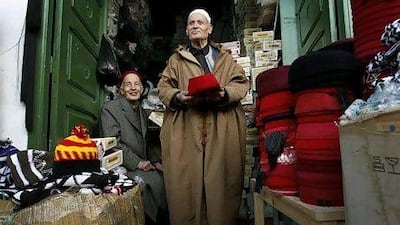Slowing growth in the EU risks harming fragile economic recoveries from the unrest in North Africa.
Europe accounts for the bulk of foreign tourists in the region, along with a large portion of exports from Egypt, Tunisia and Morocco. North African workers in the EU also send home remittances, helping to support domestic economies.
But GDP expansion in the euro zone ground almost to a standstill in the second quarter, data released this week showed.
"The EU is the largest trading partner for North Africa, so a downgrade of euro-zone growth matters for the region," said Ann Wyman, the managing director and head of emerging markets research Europe at Nomura.
Weak activity in Europe comes at a time when Egypt and Tunisia are still struggling to rebuild their economies after political uncertainty followed the revolutions this year.
Both countries were expected to report low growth of only 1 per cent to 2 per cent this year, with many parts of the economy still fragile.
The uncertain outlook could be further undermined by exposure to cooling growth in the euro zone as the area grapples with a sovereign debt crisis, economists warn.
The combined GDP of the area's 17 members expanded by only 0.2 per cent in the second quarter, the slowest expansion since the end of the recession in the same period of 2009. GDP in Germany, the euro-zone's largest economy, expanded by only 0.1 per cent in the same period this year, the country's statistical office reported.
"The immediate and primary channel of contagion to Mena [the Middle East and North Africa] from a full-blown crisis in the European periphery, that undermines growth prospects in Europe as a whole, would be the balance of payments," Raza Agha, the Mena economist at the Royal Bank of Scotland, wrote in a research note last week.
Sub-regionally, the effect would be most profound across the Mediterranean in Egypt, Tunisia and Morocco, he wrote.
About 21 per cent of North African exports head to Portugal, Spain, Italy, Greece and Ireland, the nations most embroiled in the debt crisis. Europe as a whole accounts for an even greater proportion of goods, including 73 per cent of Tunisian exports.
A significant employer and driver of currency earnings, North Africa's tourism trade is already suffering from a reduction in visitors after the Arab Spring. Egypt recorded sharp declines in April and May.
The industry could be further hit by tepid growth in Europe, which accounts for 76 per cent of tourists to Egypt and a large proportion of arrivals to Tunisia and Morocco.
Another risk is that attempts by North African governments to finance budget deficits could be undermined by a slowdown in remittance flows and foreign direct investment from Europe.

